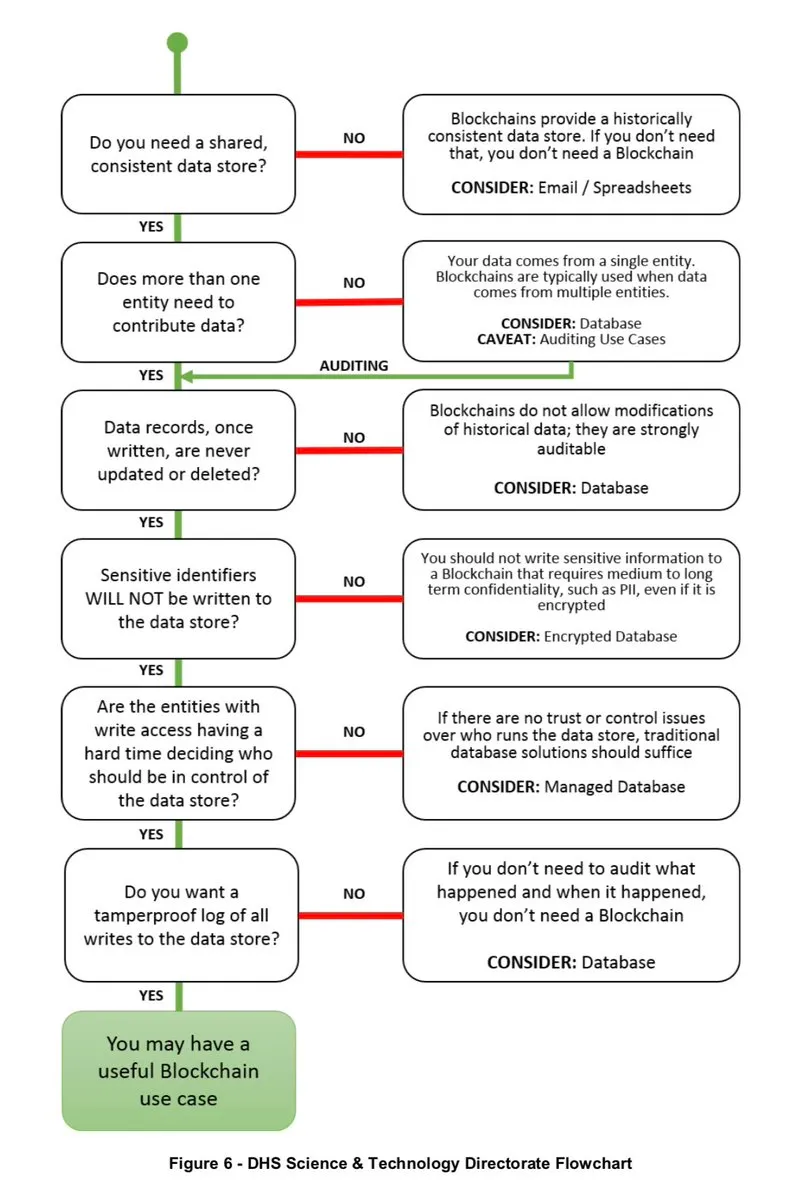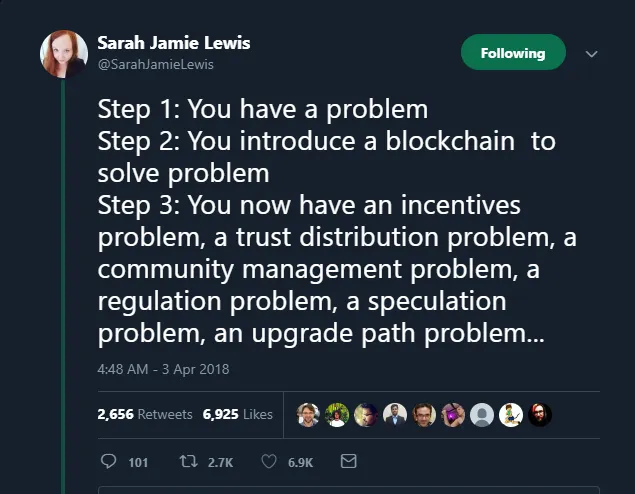Are you wondering whether your company or organization needs to use this chainblock technology that everybody's talking about? Here's a useful flowchart from the United States Department of Homeland Security Science & Technology Directorate, quoted by the National Institute of Standards and Technology in NISTIR 8202: Blockchain Technology Overview (October 2018). In other words, it's doubly approved by the United States government.

This is a well-informed and balanced approach. There are more flowcharts that answer the same question, but this is the best one I've seen.
Earlier this year, I talked to someone working in logistics, and I learned that the issue of who should be in control of the data store is a real concern for companies working in an industrial supply chain. So far, they're using centralized services when there's no alternative, but they're not happy about it. Would you trust a service provider to be independent when a bigger competitor or client pays them twenty times as much? Ironically, this is a problem for Maersk and IBM's digital ledger platform TradeLens. As CoinDesk reported, "Maersk's rival shipping carriers are concerned about joining the platform on a less than equal footing."
On the other hand, the risk of saving sensitive data on a public blockchain is unacceptable. Nobody can guarantee that the encryption you use won't be broken 10 or 20 years from now.
So it might be better to record only the proof that a certain inventory or waybill document existed at a certain moment on the blockchain. This would also save space, because you can summarize any amount of information in a hash - you just can't reconstruct it the other way around. In fact, with this method you wouldn't need your own blockchain at all. You could simply record the proof on a public blockchain. This is very cheap when you aggregate hashes. You only have to save the root of a Merkle tree. For example, OpenTimestamps commits hashes indirectly to Bitcoin blocks for free.
Another question isn't addressed in the flowchart: How do you implement a blockchain? I'm not sure whether it would be more expensive than a database. Oracle or SAP products aren't cheap either. But digital ledger technology would be a headache for non-technical companies, because there are no standards, licenses or best practices. It would also be hard to find good developers. Even if you can afford to pay them well, they might prefer to work on a more exciting project, like creating their own coin or dapp.
From a skeptical point of view, privacy activist/hacker/researcher Sarah Jamie Lewis warns that implementing a blockchain will cause a cascade of complications:

And conversely, on the eve of Election Day in the US, we saw an example of how not to promote 'blockchain': Hype-man Alex Tapscott's blockchain voting proposal in the New York Times. I don't have time to sum up everything that's wrong with it, but it's a cringy kind of fun to read the exasperated replies from actual experts in that Twitter thread.
I skimmed through the NIST Overview, and it looks like an excellent introduction to cryptocurrency technology. Except that it doesn't mention Monero (Steem is mentioned as an example of Decentralized Proof-of-Stake). Anyone who can read technical reports in their own field should be able to read this report. It's what I was looking for when someone asked me for an autoritative report after I gave a presentation about crypto applications a year ago. I had to answer that our most reliable sources of information are Bitcointalk threads, Github issues and StackExchange answers, scattered like the first Quran fragments written on palm leaves, stones and the shoulder blades of animals.
Of course, as rational as engineers working for the government may be, there's a limitation to their perspective. They're asking this from the point of view of organisations, while blockchains are designed to replace organisations - starting with central banks, but we can generalize that principle. Instead of asking "Does my organisation need a blockchain?" I'd prefer to ask "Does my blockchain need an organisation?"